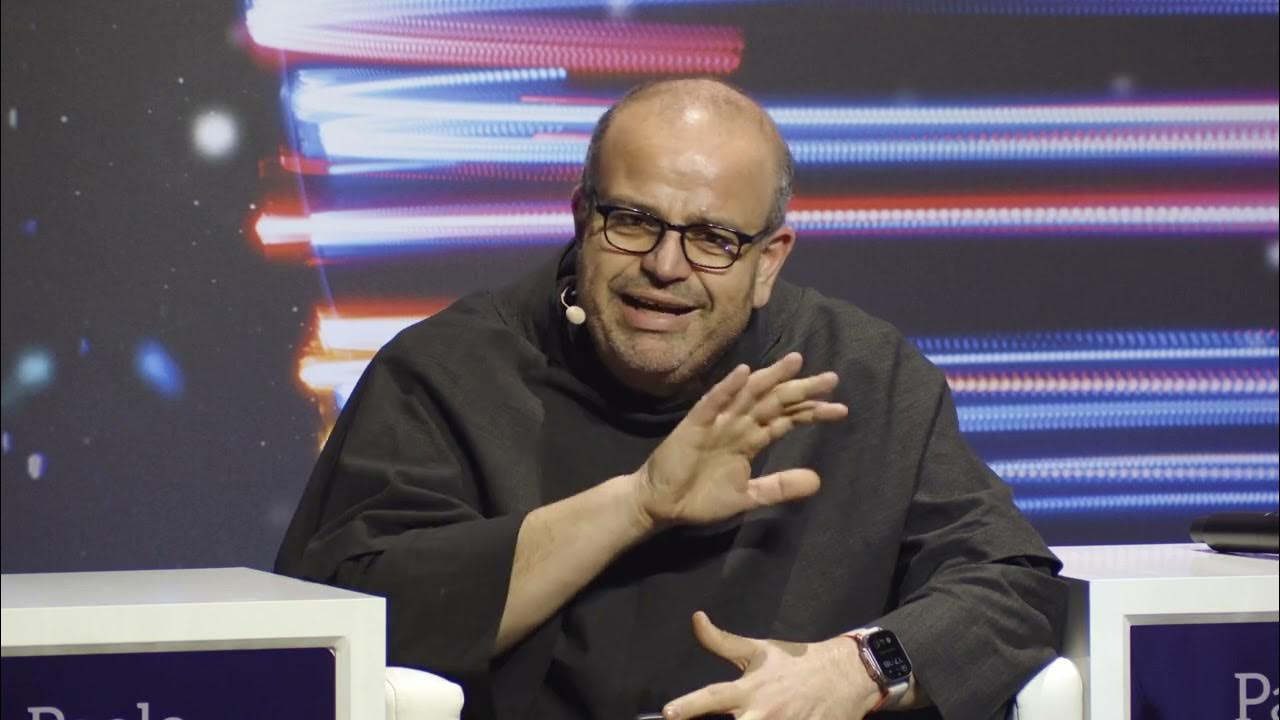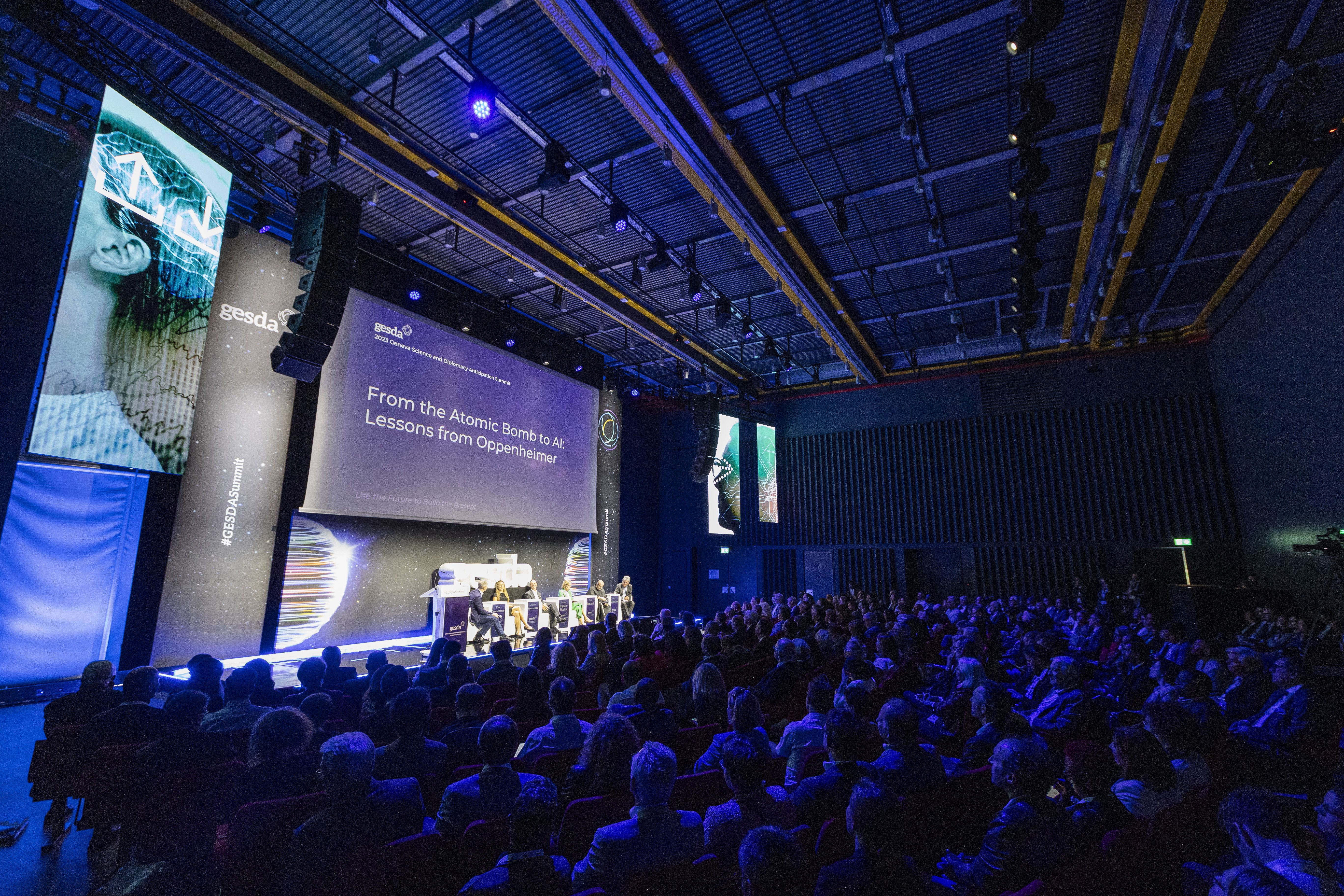
Whether it be artificial intelligence or the climate crisis, all global challenges require international cooperation in science and engagement with society. In the face of rapid scientific and technological development, what lessons can be learned from the past and ensure that we responsibly anticipate the next breakthrough and its impact at large?
Takeaway Messages
“J. Robert Oppenheimer, known as “the father of the atomic bomb,” is viewed as a model of leadership for handling major scientific and technological crises. His role in the Manhattan Project, leading a team of Nobel Prize-winning scientists, is seen as particularly relevant to today’s challenges in artificial intelligence.
”
“Developments in artificial intelligence are prompting fear because unlike the atomic bomb, there is not necessarily any human in the loop to make a decision.
”
“Anticipating the latest developments in science and technology – as GESDA does – so that society has sufficient time to assess their impact and act could help to prevent mistakes of the past.
”



